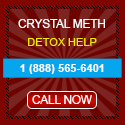Earlier it used to be just the alcohol abuse problem in North Carolina, but now this abuse has been complicated by several supplementary issues.
Things are really becoming difficult because people who are checking in for alcohol abuse treatment in North Carolina are having complications such as other addictions, health problems, mental issues, emotional issues, etc. For the treatment providers for alcohol addiction in North Carolina, the times have never been as chaotic as these.
North Carolina Alcoholism Hotlines |
|
| Burlington – (336) 310-0413 | Hickory – (828) 202-4163 |
| Cary – (919) 238-4011 | Kernersville – (336) 310-0417 |
| Chapel Hill – (919) 246-9481 | Lenoir – (828) 202-4176 |
| Charlotte – (704) 215-4895 | Morganton – (828) 202-4159 |
| Concord – (704) 215-4902 | Raleigh – (919) 301-0174 |
| Durham – (919) 246-9484 | Smithfield – (919) 246-9487 |
| Greensboro – (336) 218-6345 | Summerfield – (336) 441-1098 |
| Greenville – (252) 364-3119 | |
The first thing of note here is that the number of people into an alcohol abuse in North Carolina has increased wildly. Though there are several centers for alcohol detox and alcohol rehab in North Carolina, the sheer number of people have made these centers quite full.
This is what is building most of the pressure.

But then there is the problem of supplementary addictions which has increased immensely in the past few years.
Trends here indicate that people become immunized to the alcohol quite early on, and that is the reason they look forward to using other addictive substances. Since drugs are quite easily available in the state, they may get into a drug addiction soon enough. Marijuana, cocaine and heroin all are possible as a supplementary addiction to alcohol abuse and later on as a main form of addiction.
Prescription drug abuse is also a possibility that cannot be ruled out. But the drug that is coming on too strongly in recent times as a secondary addiction is methamphetamine. Being a very highly addictive drug, the issue is as difficult as it can be.


